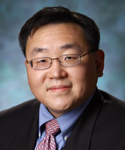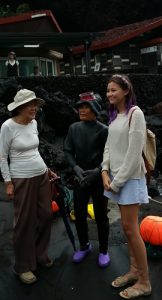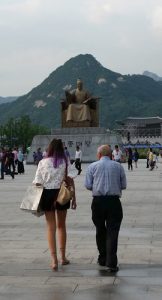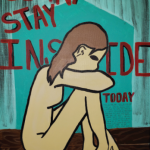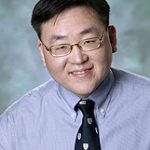For the last 20 years, Philip Seo, MD MHS, has trained, worked and conducted research at Johns Hopkins University. As an associate professor of medicine, he also serves in two other roles: as the director of the university’s fellowship training program and director of its vasculitis center.
After graduating medical school from Columbia University in 1997, Dr. Seo joined the medical staff at Johns Hopkins that same year and never left. He jokingly says he’s worked in nearly every position at the school but dishwasher. He completed his internship and residency in 2000, worked as a hospitalist for the next year, and between 2001 and 2002, served as chief resident. For the next 2½ years, he was a rheumatology fellow before being promoted to faculty.
While his clinical background is impressive, so is Dr. Seo as a person. The Rheumatologist (TR) chatted with him about his personal experiences, rheumatology career and vision for the magazine.
TR: Why did you decide to become a physician? Was there a defining moment?
Dr. Seo: My parents are physicians so I was surrounded by [medicine] while growing up. It always seemed like a natural progression for me . . . I very specifically decided to choose a specialty that wasn’t either my mom’s or dad’s specialty. My mom is a pediatrician and my dad is a surgeon. I knew if I chose either of those specialties, I would never hear the end of it.
TR: So why did you choose rheumatology?
Dr. Seo: For the same reason I chose internal medicine. Internal medicine is a great field for the undecided. You get to do a little bit of everything basically. It’s sort of the same way with rheumatology. Rheumatology is a great field for people who don’t want to [specialize on] an organ. With rheumatology, you have to think about everything all the time.
TR: What attracted you to the editor position?
Dr. Seo: I haven’t really been [active] with the ACR until recently. I always tell people I’ve been trying to get asked out to the dance for a while and all of a sudden I got asked by a bunch of people. I now serve as a member of both the Committee on Training and Workforce, and the Annual Meeting Planning Committee. But my tenure on both committees ends next year, so I was looking for another position to stay active.
Over the last several years, my career trajectory changed. I started out as a clinical investigator, but now, more of my time is spent disseminating knowledge, either to local trainees in my role as program director for the division of rheumatology, or to my colleagues and peers at conferences. I’m the editor of the Oxford American Handbook of Rheumatology so I have some experience with professional publishing. Taking on the role of physician editor for The Rheumatologist seems like a natural extension of my career path and would allow me to function as a teacher for an even broader audience.
TR: What do you hope to accomplish with the magazine?
Dr. Seo: The Rheumatologist is a great resource. I think it’s underappreciated. I have a specialty in vasculitis so hopefully there will be more articles about that. I’m a clinician by training and am trying to pick associate editors who have specialties in complementary fields so that we make sure everyone gets heard.
The increased demand for rheumatologists by an aging population is the most compelling issue facing our specialty. There are multiple facets to this problem, including inadequate exposure to trainees and inadequate reimbursement for the non-procedure-oriented subspecialties, both of which discourage medical students and house staff from rheumatology as a field. All of this comes down to a lack of understanding—among both trainees and lawmakers. The Rheumatologist could be at the vanguard of both issues, conveying the excitement of the field to trainees who have not yet committed to a specialty, while educating colleagues regarding the legislative issues that should receive our attention and will affect our ability to deliver quality healthcare.
TR: With such a grueling work schedule, how do you relax or have fun?
Dr. Seo: I tend to do a lot of traveling [giving lectures] so that’s my hobby. I went to the Chilean Society of Rheumatology meeting, was in New Orleans, Seattle, Canada and Puerto Rico before the hurricane. Basically, I just hang out with family and friends for fun. I just came back from a big family trip to Korea and have close ties with my 16-year-old niece, Avery, and 13-year-old nephew, Jackson.
TR: How do you envision the magazine evolving over the next several years?
Dr. Seo: The Rheumatologist has the ability to shape the field . . . consciously selecting issues and advances to highlight for its readership [and] shedding light on topics that otherwise might be ignored.
The content is already quite good . . . The time may come to consider a redesign that would allow the print edition to fit easily into a white coat pocket, with articles that could be torn out for sharing.
Over the next three years, an important audience to target is trainees who are making the transition to independence and at high risk of not continuing their membership in the ACR. The Rheumatologist could be used to promote micro-volunteering opportunities and encourage members to become involved in ACR activities that might lead to greater loyalty in the future.
Listen to Dr. Seo discuss his reasons for choosing rheumatology as a specialty.
Carol Patton is a freelance writer based in Las Vegas.
